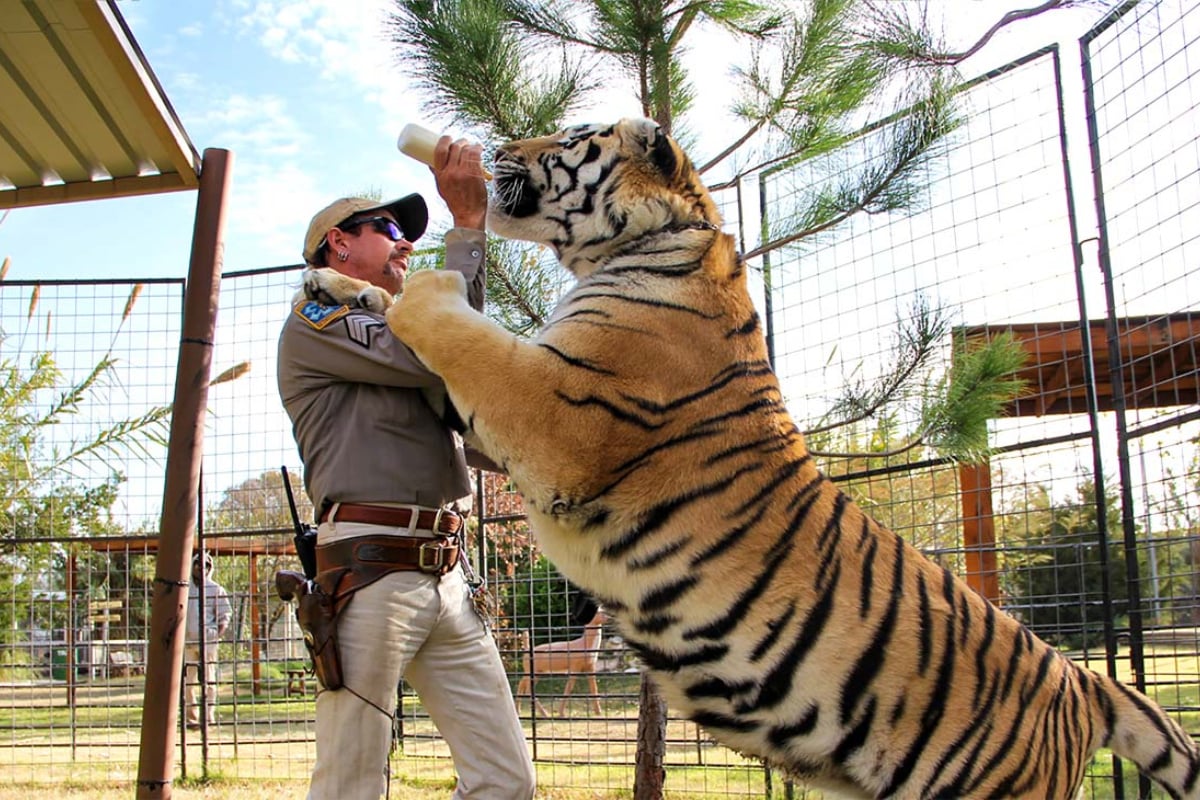In the kaleidoscopic world of reality television, few series have stirred such a cacophony of debate as “Tiger King.” Dubbed an odyssey into the wild and whimsical lives of exotic animal keepers, the series catapults viewers into a surreal spectacle rife with ethical quandaries. At its core, the documentary serves as both a titillating spectacle and a grim exposé of the underbelly of the big cat trade in America, compelling audiences to confront uncomfortable truths about animal cruelty and exploitation.
The title itself, “Tiger King,” evokes an air of grandeur and authority, almost as if the protagonist embodies a monarch presiding over a kingdom of untamed beasts. Yet, behind this regal facade lies the unvarnished reality of negligence, abuse, and exploitation. As the camera pans across the sprawling grounds of exotic animal sanctuaries and private zoos, one cannot ignore the dissonance between the glorified portrayal of these animals and the harrowing treatment they often endure.
At a superficial glance, the series is a sensational ride through the eccentricities of its characters: Joe Exotic, Carole Baskin, and their ilk. The dramatic arcs and entangled relationships might entertain, but it is the ethical implications that demand scrutiny. Are these individuals true conservationists, or are they mere exploiters draped in the guise of animal caretakers? This inquiry leads to a broader discussion about the commodification of wildlife, a subject largely overshadowed by the show’s whirlwind of intrigue and suspense.
The very essence of animal cruelty is associated with neglect and the mistreatment of creatures who possess inherent rights to humane treatment and dignity. As viewers witness the breeding practices employed to amass a collection of exotic animals, the lines between passion and exploitation become blurred. The cacophony of roars, growls, and the haunting cries of these magnificent beings symbolizes a profound sorrow, a lamentation over their captivity—one that echoes throughout the series.
It’s essential to differentiate between animal care and exploitation. The former entails a commitment to animal welfare, education, and conservation; the latter denotes a selfish pursuit driven by profit and amusement. Exotic animal sanctuaries may tout their conservation efforts, but “Tiger King” deftly illuminates the hollowness of such claims when one observes the conditions these animals endure. The prevailing question emerges: can the line between care and exploitation truly be delineated in an industry that thrives on the allure of the exotic?
Moreover, the series raises poignant inquiries about legality and the ethics of ownership. With the lax laws surrounding exotic animal ownership in America, what delineates a responsible caregiver from a criminal? The characters in “Tiger King” often operate within a legal gray area, provoking a discussion about the necessity for stricter regulations. Such do-nothing legislation highlights an ethical vacuum, as it allows individuals to exploit these beings for financial gain while omnisciently turning a blind eye to the ensuing suffering.
Through the intricate narrative woven throughout the series, interspersed with bursts of pathos, the filmmakers do not shy away from showcasing the darker undercurrents of human behavior—the desire for dominance and superiority over nature. The relationships depicted are often predicated on power dynamics that mirror the ancient feudal systems where lords reigned over their domains. The wildlife becomes a mere extension of their owners’ egos—conduits for human vanity rather than sentient beings deserving of respect.
The allure of exotic animals is perpetuated by societal fascination; this voyeuristic desire often leads individuals down a treacherous path of exploitation masquerading as stewardship. The clamor for big cat experience lures unsuspecting patrons into environments fraught with ethical dilemmas, where the adoration of fluffy cubs drives demand for more, often at the expense of the animals’ well-being. Such dynamics encapsulate the paradox of exploitation: the very deification of these creatures paves the way for their degradation.
As the series inexorably spirals toward its tumultuous conclusion, the consequences of exploitation become manifest. Relationships fracture, lives unravel, and a reckoning occurs—revealing the profound fallout of a system built on the backs of captive wildlife. This denouement serves as a stark reminder that each decision made, each act of negligence or cruelty, reverberates far beyond individual personalities, echoing within the grand tapestry of animal rights discourse.
On reflection, “Tiger King” emerges as more than a sensationalist chronicle of eccentric individuals; it transcends entertainment, morphing into a pivotal lens through which we examine our values regarding wildlife. It urges a seismic shift in our perspectives. Addressing animal cruelty and exploitation is not merely a matter of scrutinizing the actions of individuals but also of confronting systemic injustices that allow such behavior to flourish.
Ultimately, “Tiger King” invites viewers to traverse the intricate landscapes of animal welfare and ethical responsibility. The rich tapestry of its narrative, while undeniably captivating, serves a higher call: the necessity for reform, advocacy, and a deeper comprehension of our collective relationship with the planet’s most vulnerable inhabitants. As we reflect on the vivid tableau presented, may we glean insights that propel us towards a more compassionate coexistence with the diverse fauna that share our world.








